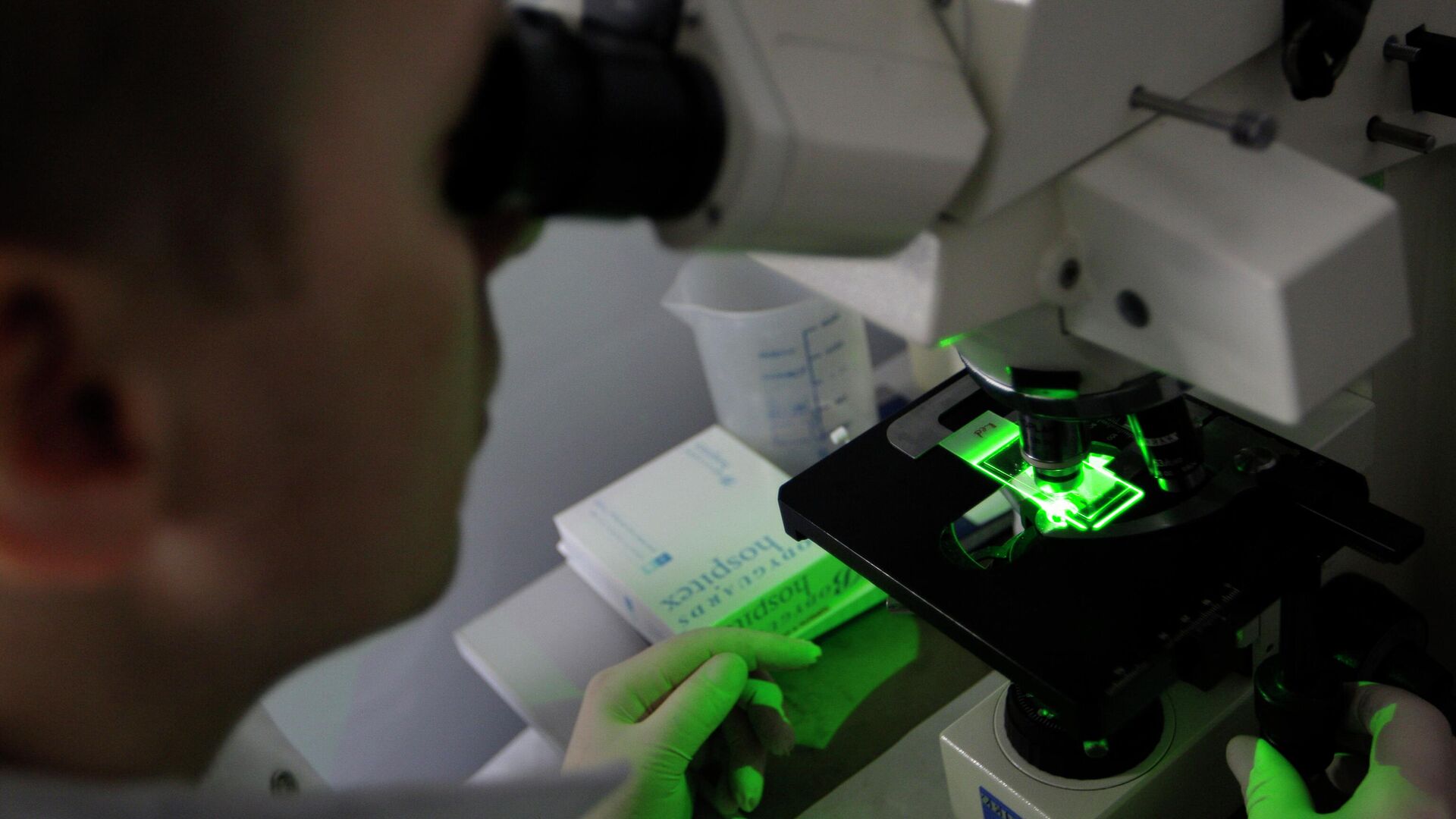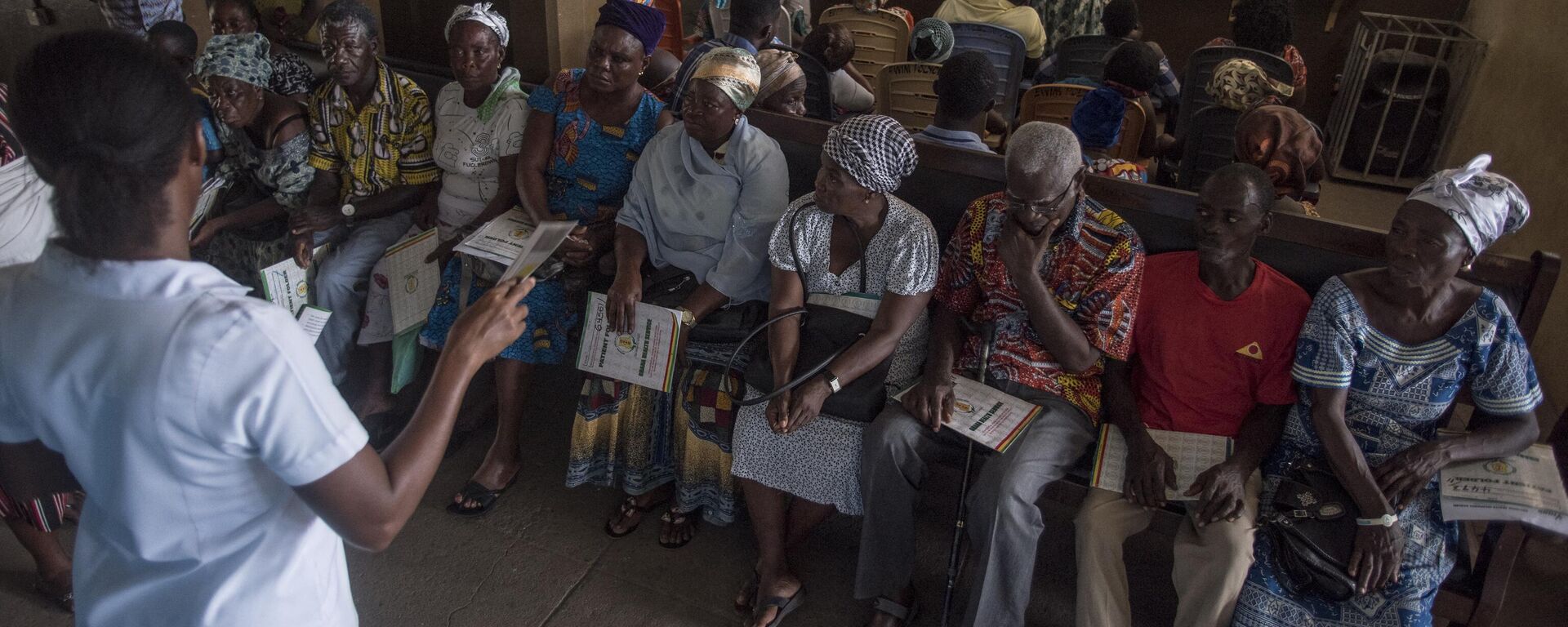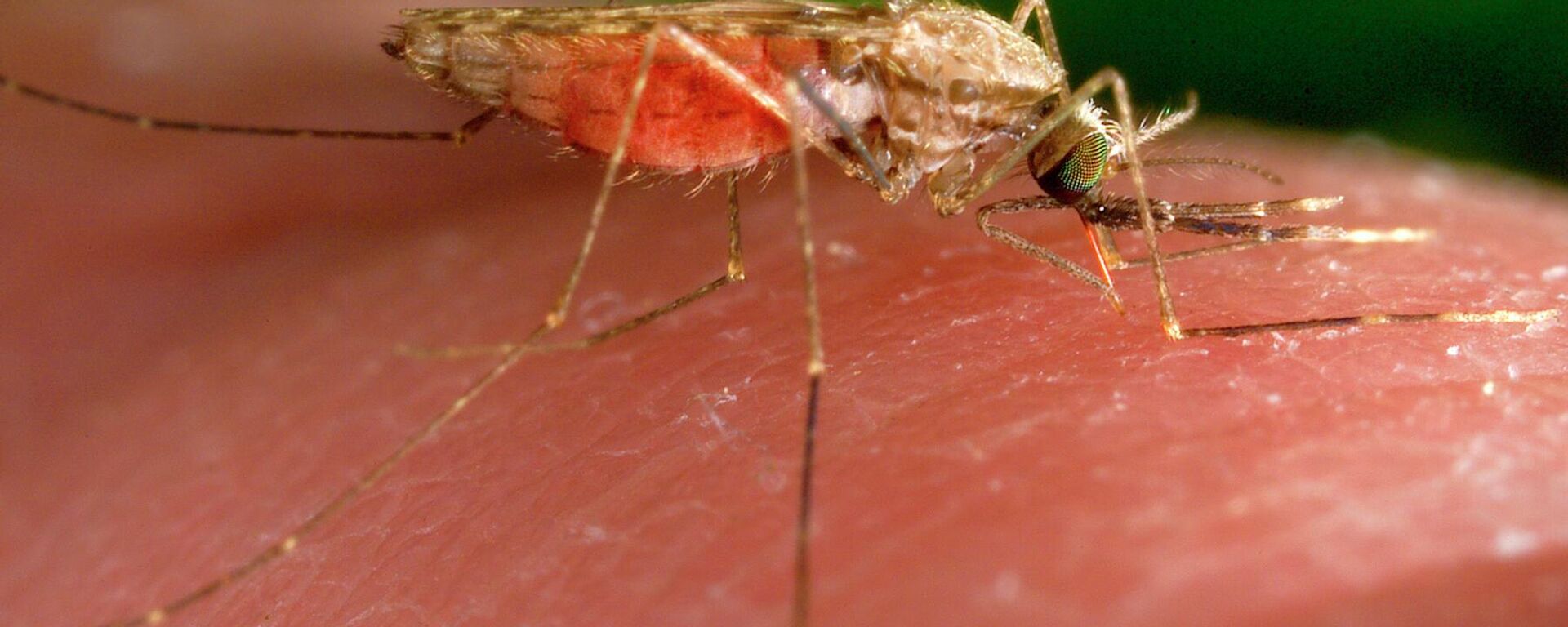https://en.sputniknews.africa/20230820/world-mosquito-day-how-africa-ramps-up-fight-against-malaria-1061473463.html
World Mosquito Day: How Africa is Ramping Up Fight Against Malaria
World Mosquito Day: How Africa is Ramping Up Fight Against Malaria
Sputnik Africa
On August 20, the international community observes World Mosquito Day, not to honor these rather annoying buzzing insects, but to raise global awareness of the... 20.08.2023, Sputnik Africa
2023-08-20T18:18+0200
2023-08-20T18:18+0200
2023-08-21T09:40+0200
features
malaria
health
healthcare
world health organization (who)
russia
russia-africa cooperation
russia-africa summit
sierra leone
africa in details
https://cdn1.img.sputniknews.africa/img/07e7/08/14/1061476651_0:160:3073:1888_1920x0_80_0_0_81ceb2ebbfd5371e984b160946e1d3c7.jpg
The main purpose of World Mosquito Day is to draw public attention to the issue of malaria, raise awareness about the deadly disease that kills about 619,000 people globally per year and methods of its prevention. On this occasion, Sputnik Africa takes a glimpse at the history of this day and its importance, as well as looking at the most recent developments in the world's struggle to eliminate the disease. Background of World Mosquito DayMosquito Day is an initiative established by Ronald Ross (1857-1932), a British doctor and parasitologist of Scottish origin, who discovered that malaria vectors are female mosquitoes of the genus Anopheles. After graduating from college, Ross worked as a medical officer for the British Medical Service in India. The widespread occurrence of malaria in India prompted Ross to study the causes of this disease. In 1897, he succeeded in proving experimentally that malaria is transmitted through mosquito bites.For this discovery, Ross was awarded the Nobel Prize in Physiology or Medicine in 1902. Following this finding that mosquitos are the source of the deadly parasites that cause malaria, scientists around the world were able to better understand the deadly role of mosquitoes in the transmission of diseases. In order to draw global attention to malaria, Ross proposed to observe Mosquito Day.His discovery not only revolutionized the world's knowledge of malaria, but also led to the creation and adoption of new preventive measures and treatments to deal with the disease. Mosquito-Borne Disease in Africa According to the WHO, Africa bears the largest share of the global malaria burden due to the disease's prevalence in tropical and subtropical countries. In 2021, approximately 95% of all malaria cases and 96% of all deaths were recorded on the continent. Four African countries - Nigeria, the Democratic Republic of the Congo, Tanzania and Niger - accounted for more than half of all malaria deaths worldwide. Moreover, children under the age of five, the most vulnerable and exposed group to the disease, accounted for nearly 80% of all malaria deaths on the continent. The most devastating aspect of these statistics is that despite global efforts to eliminate malaria, the disease persists and continues to affect the health and livelihoods of people in different regions of the world. However, as science develops and the preventive measures become more sophisticated and effective, many countries all over the globe willingly share their experience in preventing and eliminating the disease. Russia's Experience to Help Africa in Combating MalariaDuring the Second Russia-Africa Summit held in St. Petersburg in late July, Russia and Sierra Leone signed an agreement to launch a pilot project in the West African nation's capital, Freetown, to prevent the spread of malaria through the use of Gambusia, also known as mosquito fish.Gambusia is widely used as a biological control agent against mosquito larvae, on which it feeds. In the USSR, epidemiologists N. P. Rukhadze and S. Y. Sokolov began work on using Gambusia to combat mosquitos on the Black Sea coast of the Caucasus in 1925. Thirty years later, malaria was completely eliminated in Sochi and Abkhazia. According to Nemtsev, the scientists in Sochi created a malaria control complex. He highlighted that mosquito fish alone can't eliminate the disease. A set of measures is needed, he said, including government support, because "the first thing to do is to introduce" amendments to the legislation regarding the fight against malaria. Nemtsev further elaborated that the success of the project depends on how fast all the requirements would be met, noting that this process could take more than three years. Speaking about Russia-Africa relations in the field of healthcare, Nemtsev said that during the summit, many African countries expressed their interest in establishing cooperation in the battle against malaria and other infectious diseases.'To Defeat an Enemy, You Must Know Them'All recent studies of mosquitoes, their behaviors and preferences, are aimed at learning more about them in order to find the most effective tools to fight them and thus control malaria transmission. A study by researchers from the Johns Hopkins Bloomberg School of Public Health's Malaria Research Institute and the Macha Research Trust revealed that human body odor is critical to mosquitoes' long-distance host-seeking behavior. The scientists built a 1,000-m3 test arena in Choma District, Zambia, to study how the African malaria mosquito locates and selects human hosts over large spatial scales.First, to assess olfactory preferences of mosquitos, they compared the relative importance of heat, CO2, and human body odor in attracting the insects. They found that the latter is the most attractive bait.Then, researchers tested the mosquitoes' choosiness. They discovered that some people were more attractive to mosquitoes than others, and one of the six volunteers, who had a different scent composition attracted few mosquitoes. The scientists pointed to some stable patterns in each person's odor profile, noting that those who were more attractive to mosquitoes emitted more carboxylic acids. At the same time, the person who was least attractive as a potential meal emitted fewer carboxylic acids but more eucalyptol, a compound found in many plants. They suggested that the increased amount of eucalyptol might be related to the person's diet.
https://en.sputniknews.africa/20230425/world-malaria-day-africas-path-to-eliminate-the-deadly-disease-1058801446.html
https://en.sputniknews.africa/20230804/novel-approach-to-malaria-control-scientists-find-bacteria-that-suppress-transmission-1061061629.html
russia
sierra leone
Sputnik Africa
feedback@sputniknews.com
+74956456601
MIA „Rossiya Segodnya“
2023
News
en_EN
Sputnik Africa
feedback@sputniknews.com
+74956456601
MIA „Rossiya Segodnya“
Sputnik Africa
feedback@sputniknews.com
+74956456601
MIA „Rossiya Segodnya“
malaria, health, healthcare, world health organization (who), russia, russia-africa cooperation, russia-africa summit, sierra leone, africa in details
malaria, health, healthcare, world health organization (who), russia, russia-africa cooperation, russia-africa summit, sierra leone, africa in details
World Mosquito Day: How Africa is Ramping Up Fight Against Malaria
18:18 20.08.2023 (Updated: 09:40 21.08.2023) Longread
On August 20, the international community observes World Mosquito Day, not to honor these rather annoying buzzing insects, but to raise global awareness of the devastating impact mosquito-borne diseases, especially malaria, have on people around the world.
The main purpose of World Mosquito Day is to draw public attention to the issue of malaria, raise awareness about the deadly disease that kills about 619,000 people globally per year and methods of its prevention.
On this occasion,
Sputnik Africa takes a glimpse at the history of this day and its importance, as well as looking at the most recent developments in
the world's struggle to eliminate the disease.
Background of World Mosquito Day
Mosquito Day is an initiative established by Ronald Ross (1857-1932), a British doctor and parasitologist of Scottish origin, who discovered that malaria vectors are female mosquitoes of the genus Anopheles.
After graduating from college, Ross worked as a medical officer for the British Medical Service in India. The widespread occurrence of malaria in India prompted Ross to study the causes of this disease. In 1897, he succeeded in proving experimentally that malaria is transmitted through mosquito bites.
For this discovery, Ross was awarded the Nobel Prize in Physiology or Medicine in 1902. Following this finding that mosquitos are the source of the deadly parasites that cause malaria, scientists around the world were able to better understand the deadly role of mosquitoes in the transmission of diseases. In order to draw
global attention to malaria, Ross proposed to observe Mosquito Day.
His discovery not only revolutionized the world's knowledge of malaria, but also led to the creation and adoption of new preventive measures and treatments to deal with the disease.
Mosquito-Borne Disease in Africa
According to the WHO, Africa bears the
largest share of the global malaria burden due to the disease's prevalence in tropical and subtropical countries.
In 2021, approximately 95% of all malaria cases and 96% of all deaths were recorded on the continent. Four African countries - Nigeria, the Democratic Republic of the Congo, Tanzania and Niger - accounted for more than half of all malaria deaths worldwide.
Moreover, children under the age of five, the most vulnerable and exposed group to the disease, accounted for nearly 80% of all malaria deaths on the continent.
The most devastating aspect of these statistics is that despite global efforts to eliminate malaria, the disease persists and continues to affect the health and livelihoods of people in different regions of the world.
However, as science develops and the preventive measures become more sophisticated and effective, many countries all over the globe willingly share their experience in preventing and eliminating the disease.
Russia's Experience to Help Africa in Combating Malaria
During the Second Russia-Africa Summit held in St. Petersburg in late July, Russia and Sierra Leone signed an agreement to launch a pilot project in the West African nation's capital, Freetown, to prevent the spread of malaria through the use of Gambusia, also known as mosquito fish.
Gambusia is widely used as a biological control agent against mosquito larvae, on which it feeds. In the USSR, epidemiologists N. P. Rukhadze and S. Y. Sokolov began work on using Gambusia to combat mosquitos on the Black Sea coast of the Caucasus in 1925. Thirty years later, malaria was completely eliminated in Sochi and Abkhazia.
"Historically, Sochi was not a resort city. It was a city with difficult climatic conditions, with a good subtropical climate. But at the same time there was a disease, malaria, and people came here, got sick, died. This is what is happening in Africa right now," said Yuriy Nemtsev, special representative of the Sochi Municipal Council for international relations and director general of the Russian company VneshEconomPlatforma, one of the sides to the agreement with Sierra Leone.
According to Nemtsev, the scientists in Sochi created a malaria
control complex. He highlighted that mosquito fish alone can't eliminate the disease. A set of measures is needed, he said, including government support, because "the first thing to do is to introduce" amendments to the legislation regarding the fight against malaria.
"I repeat, it is a mistake to say that Gambusia can defeat malaria. This is a set of measures: pesticides, legislation and, of course, Gambusia," he stressed.
Nemtsev further elaborated that the success of the project depends on how fast all the requirements would be met, noting that this process could take more than three years.
Speaking about Russia-Africa relations in the field of healthcare, Nemtsev said that during the summit, many African countries expressed their interest in establishing cooperation in the battle against malaria and other infectious diseases.
'To Defeat an Enemy, You Must Know Them'
All recent studies of mosquitoes, their behaviors and preferences, are aimed at learning more about them in order to find the most effective tools to fight them and thus
control malaria transmission.
A study by researchers from the Johns Hopkins Bloomberg School of Public Health's Malaria Research Institute and the Macha Research Trust revealed that human body odor is critical to mosquitoes' long-distance host-seeking behavior.
The scientists built a 1,000-m3 test arena in Choma District, Zambia, to study how the African malaria mosquito locates and selects human hosts over large spatial scales.
First, to assess olfactory preferences of mosquitos, they compared the relative importance of heat, CO2, and human body odor in attracting the insects. They found that the latter is the most attractive bait.
Then, researchers tested the mosquitoes' choosiness. They discovered that some people were more
attractive to mosquitoes than others, and one of the six volunteers, who had a different scent composition attracted few mosquitoes. The scientists pointed to some stable patterns in each person's odor profile, noting that those who were more attractive to mosquitoes emitted more carboxylic acids.
At the same time, the person who was least attractive as a potential meal emitted fewer carboxylic acids but more eucalyptol, a compound found in many plants. They suggested that the increased amount of eucalyptol might be related to the person's diet.



